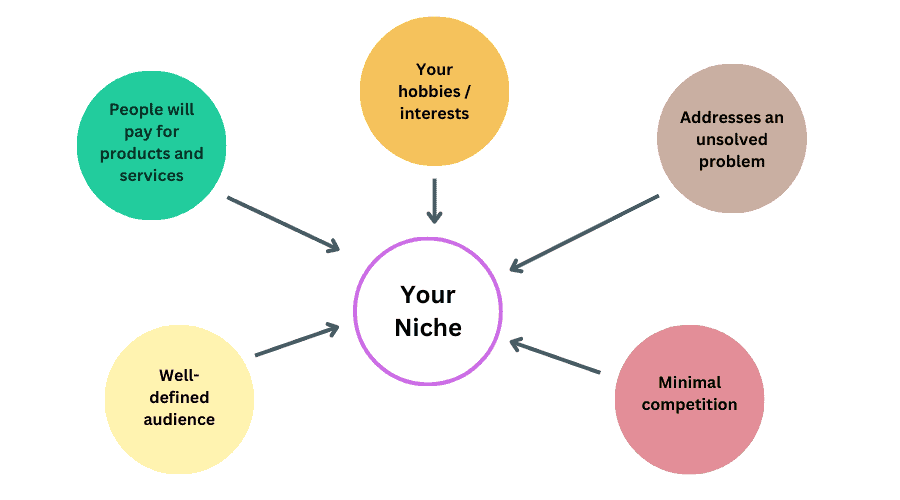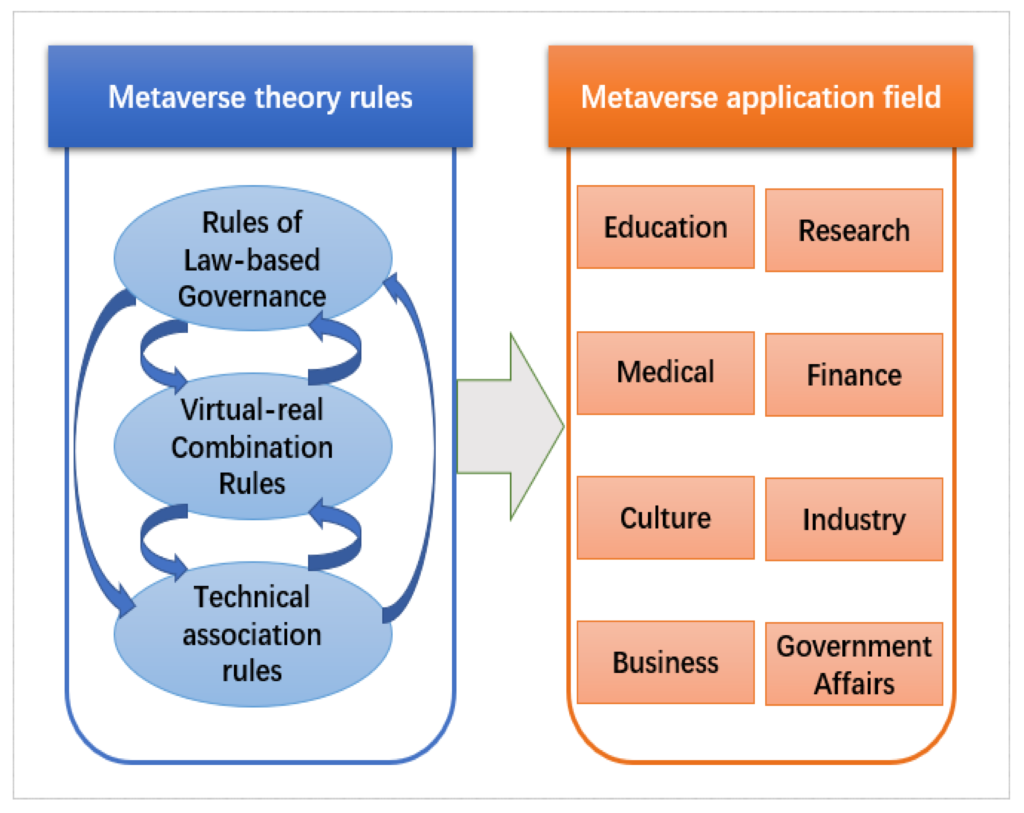So, you’ve decided to create a niche site and venture into the world of online entrepreneurship. Exciting! But as with any business endeavor, it’s essential to take a moment to ponder the ethical implications of running such a site. In this article, we’ll explore the ethical considerations that come with managing a niche site, shedding light on the potential pitfalls and offering insights into how you can navigate them responsibly. Stick around, and we’ll guide you through the fascinating realm of ethical dilemmas in the digital sphere.

This image is property of cdn.shopify.com.
Identifying and Defining a Niche Site
What is a niche site?
A niche site is a website that focuses on a specific topic or market segment. Unlike general websites that cover a wide range of subjects, niche sites target a narrower audience with specialized content. These sites aim to provide in-depth information, solutions, or products tailored to the interests and needs of a particular group.
Importance of identifying a suitable niche
Identifying a suitable niche is crucial for the success and sustainability of a niche site. By choosing a specific niche, you can position yourself as an expert or authority within that field, attracting a dedicated and engaged audience. A well-defined niche also allows you to stand out in a saturated online market, making it easier to connect with your target audience and build a loyal community.
Potential benefits of running a niche site
Running a niche site offers several potential benefits. Firstly, it allows you to focus on a specific audience, which can lead to higher conversion rates and profitability. Additionally, niche sites often face less competition than broad websites, making it easier to rank higher in search engine results. Moreover, establishing yourself as an authority in a niche can open up opportunities for partnerships, collaborations, and monetization strategies specific to that industry. It also enables you to build a strong brand and community around a shared interest or passion.
Transparency and Disclosure
The importance of transparency
Transparency is a key ethical consideration for running a niche site. Being transparent means being open and honest with your audience about your intentions, affiliations, and any potential biases. Maintaining transparency fosters trust, credibility, and long-term relationships with your audience.
Disclosure of affiliate relationships
If your niche site includes affiliate marketing, it is essential to disclose your affiliate relationships to your audience. Clearly communicate that you may earn a commission when visitors make purchases through affiliate links on your site. This transparency builds trust and ensures that your audience understands the potential financial motivations behind your recommendations.
Labelling sponsored content
When working with sponsors or advertisers, it is important to clearly label any sponsored content. Clearly distinguishing sponsored content from editorial content allows your audience to differentiate between unbiased information and promotional material. Transparently disclosing any financial arrangements or relationships ensures that your audience can make informed decisions.
Ethics of native advertising
Native advertising refers to the practice of integrating promotional content seamlessly into the website’s design and layout, making it appear like regular editorial content. While this can provide a cohesive user experience, it is important to ensure that native advertising is clearly identifiable as such. Transparency is crucial, as native advertising should not deceive or mislead the audience.

This image is property of robpowellbizblog123.b-cdn.net.
Maintaining Editorial Integrity
Balancing commercial interests with impartiality
Maintaining editorial integrity is crucial for the credibility and trustworthiness of a niche site. It is essential to strike a balance between commercial interests and impartiality. While monetization is important, it should not compromise the accuracy, objectivity, or quality of the content. Ensure that your decisions and recommendations are based on genuine value and relevance to your audience.
Avoiding biased content
It is vital to avoid biased content that favors sponsors or advertisers. Your audience relies on your niche site for unbiased information and recommendations. Avoid excessive promotion of products or services solely for financial gain. By providing fair and balanced reviews, comparisons, and opinions, you preserve the integrity of your site and maintain trust with your audience.
Ethics of accepting free products or services
As a niche site owner, you may be offered free products or services for review or promotion. When accepting these offers, remain objective and disclose any arrangements or incentives to your audience. Ensure that receiving these freebies does not affect your unbiased evaluation or compromise the quality of your content.
Maintaining a clear separation between content and advertising
To maintain editorial integrity, it is crucial to clearly separate content and advertising. Clearly distinguish between editorial content, sponsored content, and advertisements to avoid confusion or misinterpretation. This separation allows your audience to discern between unbiased information and promotional content and reinforces transparency in your niche site’s operations.
Authenticity and Trustworthiness
Creating original and valuable content
Authenticity and trustworthiness are fundamental to the success of a niche site. Producing original and valuable content that addresses the needs and interests of your audience establishes your site as a reliable source of information. Engaging, well-researched, and high-quality content not only builds credibility but also helps you establish a loyal and dedicated readership.
Avoiding deceptive or exaggerated claims
Misleading or exaggerated claims can undermine the authenticity and trustworthiness of your niche site. Ensure that any statements, promises, or guarantees you make are supported by evidence and accurately represent the products, services, or information you provide. Overhyping or misleading your audience can lead to discontent, loss of credibility, and a damaged reputation.
Building credibility and trust
Building credibility and trust is an ongoing process for a niche site. Continuously deliver on your promises and provide accurate, reliable, and up-to-date information. Engage with your audience, respond to their questions and feedback, and foster a community that values your expertise and integrity. By consistently demonstrating your knowledge and trustworthiness, you establish a strong foundation for your niche site’s success.
Ethics of using user-generated content
User-generated content, such as comments or contributions from your audience, can enhance the authenticity and trustworthiness of your niche site. However, it is essential to ensure that the content shared by users follows your site’s ethical guidelines. Moderate user-generated content to maintain a respectful and productive community and avoid publishing false or harmful information shared by users.

This image is property of bloggingtips.com.
Protecting User Privacy
Collecting and handling user data ethically
Protecting user privacy is a critical ethical consideration for running a niche site. Only collect the necessary user data required for your site’s functionalities or to provide personalized experiences. Be transparent about the types of data collected, how you handle and protect that data, and ensure compliance with applicable data protection regulations, such as the General Data Protection Regulation (GDPR) or California Consumer Privacy Act (CCPA).
Informing users about data collection practices
Maintaining transparency with your audience includes informing them about your data collection practices. Clearly state what data you collect, how it is used, and any third parties who may have access to that data. Provide a comprehensive privacy policy that outlines your site’s practices and ensure that users are aware of the information they are sharing and the purposes for which it will be used.
Obtaining explicit consent for data usage
Obtaining explicit consent for data usage is an ethical obligation when running a niche site. Ensure that users understand and consent to the collection, storage, and processing of their data. Provide clear options for users to opt-in or opt-out of particular data collection practices. Respecting your users’ choices and privacy preferences builds trust and demonstrates ethical conduct.
Securing user data and preventing breaches
Protecting user data from unauthorized access, breaches, or misuse is paramount. Implement robust security measures, such as encryption, secure data storage, and regular security audits, to safeguard user data. Be proactive in keeping your niche site’s software, plugins, and systems up to date to mitigate potential vulnerabilities. In the event of a data breach, promptly inform affected users and take appropriate steps to rectify the situation.
Ethics of Monetization Strategies
Choosing appropriate monetization methods
When considering monetization strategies for your niche site, choose methods that align with your audience’s preferences and best serve their interests. Avoid strategies that excessively disrupt user experience or compromise the quality of your content. Prioritize monetization methods, such as affiliate marketing, sponsored content, or selling relevant products/services that genuinely benefit your audience.
Balancing user experience and revenue generation
While monetization is essential, it should not come at the expense of user experience. Strive to strike a balance between generating revenue and providing a seamless, enjoyable browsing experience for your audience. Intrusive or overwhelming ads, excessive pop-ups, or slow page loading times can undermine the value of your niche site and drive users away.
Avoiding excessive or intrusive advertising
Ethical considerations in advertising revolve around avoiding excessive or intrusive practices. Too many ads or intrusive ad formats can negatively impact user experience and credibility. Maintain a reasonable number of ads that do not hinder navigation, disrupt content consumption, or detract from your niche site’s purpose. Ensure that ads are clearly distinguishable from your editorial content to maintain transparency.
Ethics of using ad blockers
Respecting user preferences and ethical guidelines also means acknowledging the use of ad blockers. Some users may choose to block ads as a way to enhance their browsing experience or protect their privacy. Respect their choices by avoiding practices that penalize or restrict access to your niche site based on their ad-blocking preferences. Explore alternative monetization methods or engage in dialogue with your audience to find a mutually beneficial approach.

This image is property of cdn.shopify.com.
Avoiding Content Plagiarism and Copyright Infringement
Respecting intellectual property rights
Ethics in running a niche site include respecting intellectual property rights. Avoid using someone else’s content without proper permission or attribution. Plagiarism and copyright infringement undermine authenticity, trustworthiness, and legal obligations. Create original content or use properly cited and referenced sources to ensure you respect the intellectual property rights of others.
Using proper citations and references
Proper citation and referencing are essential for maintaining ethical standards in a niche site. When quoting, paraphrasing, or using information from external sources, clearly attribute the original authors or creators. Provide accurate links, references, or citations to give credit where it is due and enable your audience to verify the information independently.
Challenges of fair use in a niche site
Fair use allows limited use of copyrighted material without permission for purposes such as commentary, criticism, or education. However, navigating fair use correctly can be challenging. Understand the legal guidelines surrounding fair use in your jurisdiction and exercise caution when utilizing copyrighted material. When in doubt, seek legal advice to ensure you comply with copyright laws while providing valuable content to your audience.
Ethics of content scraping and repurposing
Content scraping or repurposing refers to using someone else’s content without permission or proper attribution. It is an unethical practice that infringes upon intellectual property rights. Avoid scraping content from other websites, even if it relates to your niche. Focus on creating original, valuable content that showcases your expertise and respects the work of others.
Handling Sponsored Content
Ensuring compliance with advertising regulations
When handling sponsored content on your niche site, ensure compliance with applicable advertising regulations. Familiarize yourself with advertising guidelines specific to your jurisdiction, including requirements for disclosures, endorsements, or influencer marketing. Adhering to these regulations not only ensures ethical conduct but also protects your niche site from potential legal consequences.
Properly disclosing sponsored content
Properly disclosing sponsored content is crucial for transparency and trust. Clearly label any sponsored posts, articles, or reviews to differentiate them from regular editorial content. Disclose any financial arrangements, free products, or incentives received for featuring specific products or services. Make these disclosures prominent, easy to understand, and clearly visible to your audience.
Maintaining editorial control over sponsored content
Maintaining editorial control over sponsored content is essential to uphold the integrity of your niche site. Ensure that sponsored content adheres to your site’s quality standards, relevance to your audience, and aligns with your niche’s values. Retain the ability to reject or modify sponsored content that does not meet your guidelines or may mislead or exploit your audience.
Avoiding misleading or deceptive sponsored content
The ethics of running a niche site necessitate avoiding misleading or deceptive sponsored content. Sponsored content should reflect accurate and honest opinions, experiences, or evaluations. Do not endorse products or services that you do not genuinely believe in, as this can undermine your credibility and betray the trust of your audience. Disclose any limitations, drawbacks, or potential conflicts of interest associated with sponsored content.

This image is property of www.mdpi.com.
Ethics in Link Building and SEO Practices
Link building strategies and their ethical implications
Link building refers to the practice of acquiring external links to your niche site. Ethical link building involves acquiring links from relevant, trustworthy, and authoritative sources. Avoid unethical practices such as buying or exchanging links, participating in link farms, or engaging in spammy link building techniques that manipulate search engine rankings. Focus on providing valuable content and fostering natural, organic link building through quality relationships and interactions within your niche.
Avoiding black-hat SEO techniques
Ethical SEO practices are crucial to maintain the reputation and visibility of your niche site. Steer clear of black-hat SEO techniques, which seek to manipulate search engine algorithms. Techniques such as keyword stuffing, hidden text, cloaking, or link spamming are unethical and can lead to penalties or even deindexing by search engines. Opt for white-hat SEO techniques that focus on providing relevant, valuable content while adhering to search engine guidelines.
Maintaining transparency in SEO practices
Maintaining transparency in your SEO practices promotes ethical conduct and trust with your audience. Clearly communicate any SEO strategies, such as keyword optimization, meta tags, or structured data, that you employ to improve your niche site’s visibility. However, avoid deceptive practices that mislead search engines or manipulate rankings to gain an unfair advantage. Ethical SEO ensures that your site’s visibility is the result of genuine value and relevance.
Ethics of manipulating search engine rankings
Manipulating search engine rankings through unethical practices compromises the integrity of your niche site. Avoid using tactics designed to artificially boost rankings, as they can lead to penalties, loss of credibility, and a degraded user experience. Focus on creating quality content, optimizing your site’s structure, and adhering to SEO best practices to organically improve your search engine rankings and attract genuine traffic.
Social Responsibility and Impact
Considering the social and environmental impact of the niche
Running a niche site involves considering the social and environmental impact of the niche or industry you operate in. Be mindful of the potential consequences, both positive and negative, that your niche may have on society, the environment, or specific communities. Strive to promote an ethical and responsible approach within your niche, raising awareness of social or environmental issues, and supporting positive change through your niche site’s content and actions.
Promoting responsible consumption
Responsible consumption is an ethical consideration for niche site owners. Emphasize the importance of making informed, ethical, and sustainable choices within your niche. Encourage your audience to consider the social, environmental, and ethical implications of their purchasing decisions. Provide information and resources that enable your audience to make responsible choices and support brands or products with positive impacts.
Addressing potential negative consequences
Acknowledge and address potential negative consequences associated with your niche. Be transparent about any ethical or social challenges prevalent within the industry and strive to promote awareness, dialogue, and solutions. By openly discussing potential negative consequences, you demonstrate your commitment to ethical conduct and responsibility within your niche.
Ethics of promoting potentially harmful products or services
Running a niche site may involve promoting products or services that have the potential to be harmful in certain situations. Exercise caution and critically evaluate the ethical implications of promoting such products. Avoid endorsing or encouraging the misuse or irresponsible consumption of products that can harm people’s health, safety, or the environment. Prioritize the well-being and interests of your audience over short-term monetary gains.
In conclusion, running a niche site comes with a range of ethical considerations. From maintaining transparency and editorial integrity to protecting user privacy and promoting responsible consumption, it is essential to prioritize ethics in all aspects of operating a niche site. By demonstrating transparency, authenticity, and social responsibility, you can build trust, credibility, and long-term success within your chosen niche.

